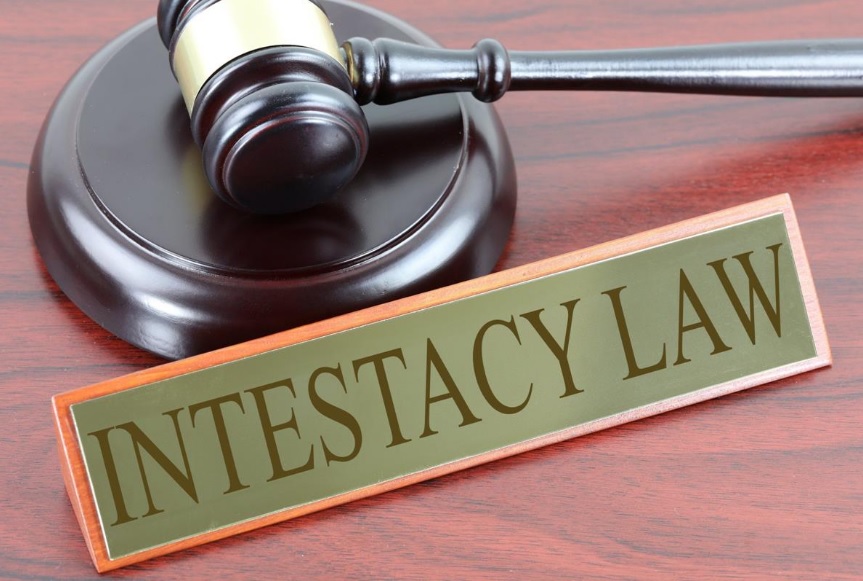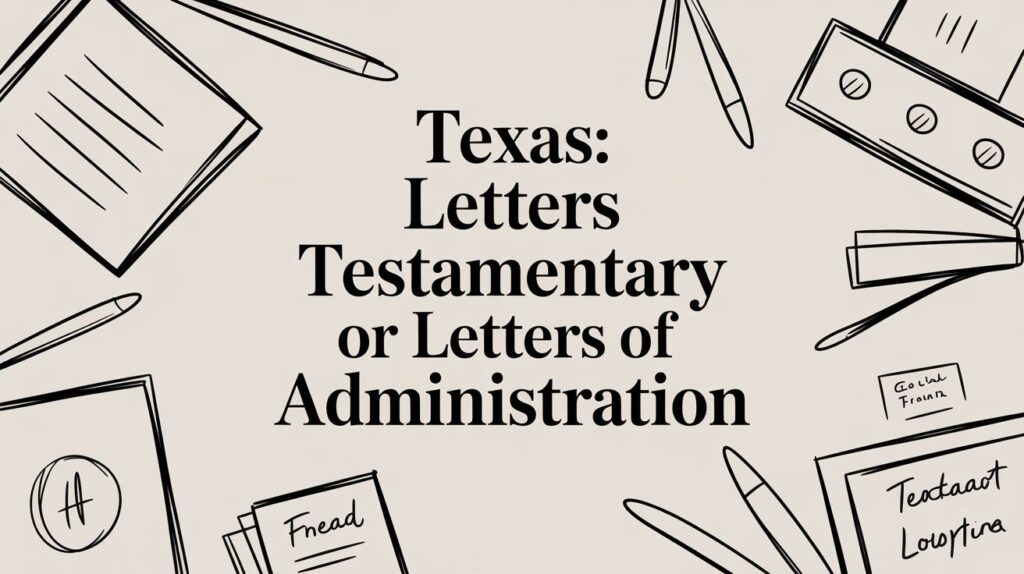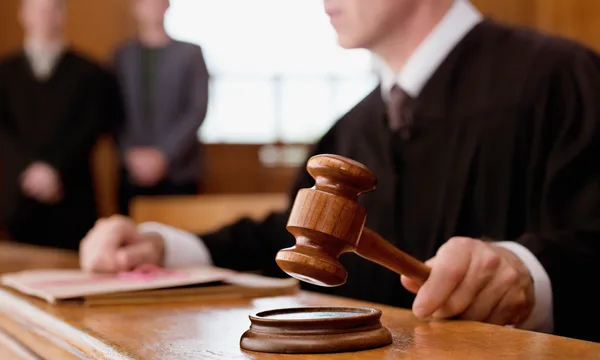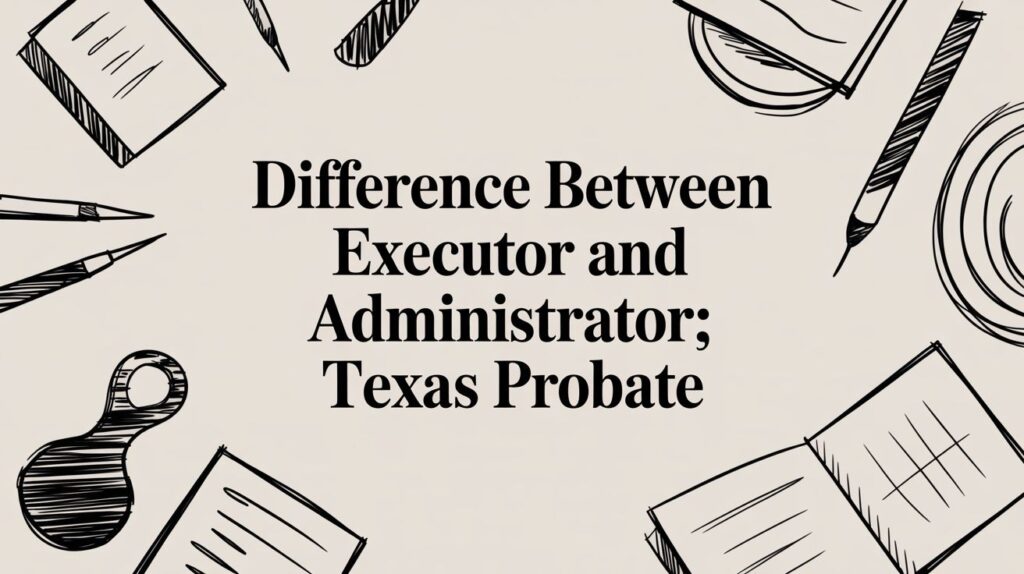When a loved one passes away in Texas, the question on many minds is, what is the procedure to probate a will in Texas when there are minor heirs? The answer isn’t always straightforward, especially when children are involved. Unlike adult heirs, minors can’t legally manage property or make decisions regarding an inheritance. This complicates things—and if not handled carefully, it can delay or disrupt theprobate process entirely.
Let’s be real: probate is already stressful. Throw in court-appointed guardians, trust creation, and strict oversight? It becomes a legal maze. But don’t worry—we’re here to break it all down.

What Does Probate Actually Mean in Texas?
To understand what is the procedure to probate a will in Texas when there are minor heirs, we need to first unpack what probate means. In Texas, probate is the legal process of validating a will, appointing an executor, identifying heirs, paying debts, and distributing the deceased’s assets.
In most cases, this process goes through the county probate court. But when a minor inherits, the court adds extra layers of scrutiny. Think of it like probate with training wheels—guardians, trusts, and court approvals are put in place to protect the child’s future.
Real Story: Why One Probate Case Took 18 Months
Consider this scenario: Maria passed away in Austin, naming her 14-year-old son as the main beneficiary in her will. She assumed her sister would automatically take care of the estate. But she never put that in writing. As a result, the court had to step in and appoint both an executor and a guardian of the estate—which took six months.
Maria’s house couldn’t be sold. Her son’s inheritance was locked in limbo. And the family was left navigating an expensive, frustrating legal delay. If they had understood what is the procedure to probate a will in Texas when there are minor heirs, they could’ve avoided the hold-up.
The Step-by-Step Procedure to Probate a Will in Texas with Minor Heirs
Let’s dive into the actual process, step-by-step. We’ll focus on what happens when one or more heirs are minors, and what extra responsibilities that adds to the probate timeline.
Step 1: File the Will and Death Certificate
The first move is filing the will and death certificate with the probate court in the county where the deceased lived. In Texas, this needs to happen within four years of the death.
If minor heirs are named in the will, the court will likely require immediate notification, so their rights are represented throughout the process.
Step 2: Prove the Will is Valid
Next, the court must verify the authenticity of the will. In Texas, most modern wills are self-proving—meaning they have signed affidavits from witnesses. If not, live testimony may be required.
This stage is crucial because minor heirs are legally vulnerable. If the will is contested, the court will likely appoint an attorney ad litem to represent the child’s best interests.
Step 3: Appoint an Executor and Guardian
If the will names an executor, the court will confirm that person’s appointment—unless someone objects. When minors are involved, the court takes a closer look.
If the child inherits property or money, the court will also appoint a:
- Guardian of the person (who physically cares for the minor)
- Guardian of the estate (who manages the minor’s inheritance)
These roles may be the same person, or not. The guardian of the estate may be required to post a bond and file regular reports with the court.
Step 4: Inventory the Estate
Texas law requires the executor to file an inventory of the deceased’s assets. This includes:
- Real estate
- Bank accounts
- Investment portfolios
- Vehicles and valuables
- Debts and liabilities
When minors are involved, this inventory becomes a tool for the court to verify exactly what the child is entitled to receive, ensuring full transparency.
Step 5: Notify Creditors and Pay Debts
Creditors must be notified, and valid claims must be paid from the estate before any heir—adult or minor—receives distributions. This includes:
- Hospital bills
- Mortgage balances
- Credit card debts
- Taxes

Even if a will sets aside funds for a minor, that share can only be finalized after all liabilities are settled.
Step 6: Manage and Protect the Minor’s Inheritance
This is where most families hit a snag. Minors cannot inherit property or money directly in Texas. The court may require:
- A guardianship bank account with spending restrictions
- A testamentary trust that holds funds until the child turns 18 or older
- An independent trustee to oversee the child’s inheritance
Spending from the inheritance—for school, health, or living expenses—must often be approved by the court, with receipts and justification provided.
Key Legal Roles in a Probate Case with Minor Heirs
Understanding what is the procedure to probate a will in Texas when there are minor heirs also means knowing who the key players are:
Executor of the Estate
Appointed by the court (often named in the will), this person manages the overall probate process and asset distribution.
Guardian of the Estate
This person manages money or property for the minor, under court supervision. They cannot use funds for themselves and must account for every expense.
Guardian Ad Litem
If disputes arise, the court may appoint a neutral third party to represent the child’s best interests in legal proceedings.
Trustee (Optional)
Sometimes, a trust is created to hold the inheritance until the child reaches maturity. A trustee—often a lawyer or financial professional—manages this trust.
Common Pitfalls in Probate with Minor Heirs
Even if the will is valid and uncontested, families often run into trouble. Here’s what to watch for:
- No guardian named: If a will doesn’t name a guardian, family members may argue over who should take the role.
- Outdated wills: A will drafted before children were born may not account for them properly.
- Trying to bypass the court: Distributing assets directly to minors without court oversight can result in legal penalties.
- Failure to report: Guardians who don’t file annual reports may be removed or sued for mismanagement.
How Long Does It Take to Probate a Will in Texas with Minor Heirs?
A standard probate in Texas takes around 6 to 9 months. However, when there are minor heirs, you’re looking at 12 to 24 months, especially if guardianship appointments, court reviews, and trust administration are involved.
Why the delay?
- Guardian bonds and court approvals take time
- Annual reports extend oversight
- Delays in inventory, creditor claims, or contested guardianship slow things down
Can You Speed Up the Process?
To some extent, yes. Here’s how:
- Have a well-drafted will that names guardians and includes trust provisions
- Hire a probate attorney experienced in cases with minor heirs
- Organize documents early, including titles, deeds, and account statements
Probate courts move faster when the paperwork is clean and the legal roles are clearly defined.

What Happens If There’s No Will at All?
When someone dies without a will in Texas, they are said to have died intestate. The court then follows a default set of rules for distributing assets—called intestate succession.
For minors, the court will:
- Appoint a guardian of the estate
- Possibly create a trust or hold funds in a registry
- Control access to the funds until the minor turns 18
This process is longer, more expensive, and often leads to family disputes. It also gives the family less control over who manages the estate and the child’s money.
Should You Consider Setting Up a Testamentary Trust?
Absolutely. If you’re creating a will and you have minor children or grandchildren, including a testamentary trust is a smart move.
Here’s what it does:
- Prevents a lump-sum payout at age 18
- Allows distributions over time (e.g., 50% at 21, 50% at 25)
- Appoints a trustee who can use the funds for education or healthcare
Including this in your estate plan can make the probate process smoother and more protective for young beneficiaries.
Final Word: Why You Need a Probate Attorney
If you’re asking what is the procedure to probate a will in Texas when there are minor heirs, the real answer is: get help early.
An experienced probate attorney can:
- Guide you through the court filings
- Help with guardianship or trust setup
- Represent you in disputes or delays
- Make sure you don’t miss deadlines
Trying to handle probate alone—especially when minors are involved—can quickly turn into a mess. The courts are strict about protecting minors, and even small missteps can lead to big problems.
Summary: What Is the Procedure to Probate a Will in Texas When There Are Minor Heirs?
Let’s recap the essentials:
- File the will and death certificate
- Validate the will in probate court
- Appoint an executor and guardian
- Inventory assets and notify creditors
- Settle debts before distributing assets
- Report regularly to the court until the minor turns 18
- Manage the minor’s share through a guardian or trust

From a legal and emotional perspective, this is one of the most delicate probate situations—and one that calls for careful planning.
Final Thoughts: Planning Today Protects Tomorrow
Knowing what is the procedure to probate a will in Texas when there are minor heirs isn’t just for legal professionals—it’s for families. If you’re a parent, grandparent, or guardian, the best gift you can leave is clarity. Don’t wait for the court to decide. Plan ahead, write a clear will, name trusted guardians, and set up financial protections for the children in your life.
Because when the unexpected happens, the right plan ensures your loved ones are cared for—even if you’re not there to do it yourself.








